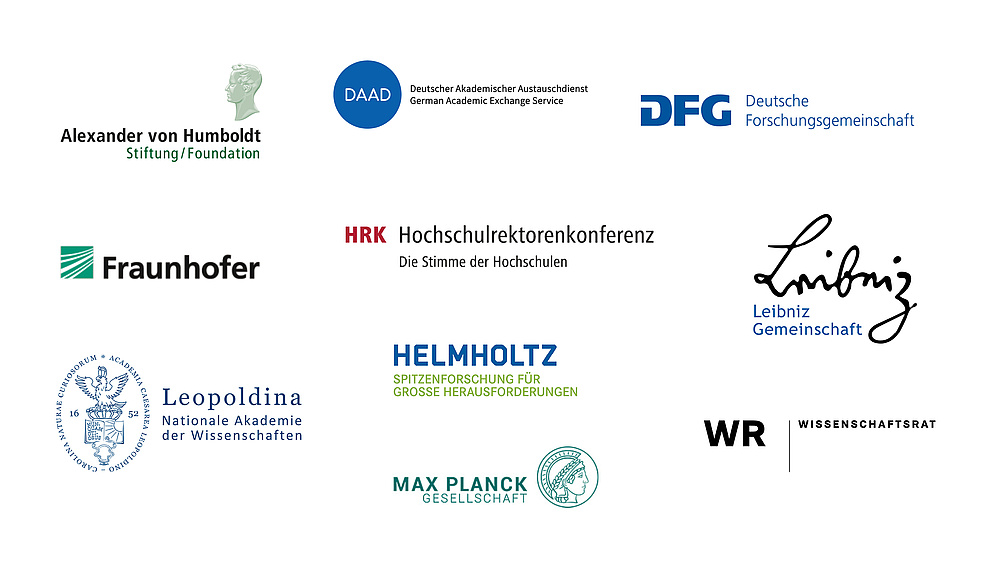
Contact
Press, Communications and Marketing
Tel.: +49 228 833-144
Fax: +49 228 833-441
presse[at]avh.de
Our country is currently facing and − in view of the approaching winter − will continue facing formidable challenges in the months ahead. The dramatic increase in the price of energy and the looming shortages in our supply of energy are placing demands on all sections of our socie-ty, on entire industries and, not least of all, on millions of people in Germany − demands that can pose existential threats. The German government is working to counteract this with enormous financial efforts and packages of relief measures. Still, the energy crisis has become a major concern for the general public.
This crisis was unleashed by Russia’s war of aggression against Ukraine, a war that has now gone on for more than half a year. The Alliance of Science Organisations in Germany is acutely aware of the complexity of these challenges. It is also aware of its responsibility to draw timely attention to the serious consequences that these developments entail for science in Germany and for the work of the individuals who conduct research.
A further increase in the price of electricity and natural gas that exceeds the ability to pay on one’s own and possible shortages in the supply of our most important sources of energy will affect all areas of scientific endeavour, including academic instruction. Moreover, individual fields of science are at particular threat from these foreseeable pressures. The consequences could be particularly dire for biological databases and archives, for large-scale test series and studies in medicine and the natural and engineering sciences and for complex research infra-structures, to name just a few examples.
Furthermore, the technical infrastructure at universities and non-university research institutions − across all fields of science − could become subject to enormous burdens and their ability to function would be jeopardized. Universities will have to spend noticeably more on energy. This can lead to staffing cuts, curtail teaching work and negatively impact the studies of thousands of students. Cutting costs by closing classroom buildings and returning to online instruction would once again lead to negative didactic and psycho-social consequences for students, as was already observed during the covid lockdowns in 2020 and 2021.
The Alliance of Science Organisations in Germany and its members have already taken measures to substantially reduce their energy consumption in their buildings and, in doing so, make a contribution to the collective efforts being taken to deal with the energy crisis. In addition, priorities have been set in order to prevent most serious effects on research and teaching and to make it possible to continue conducting scientific and academic work.
Despite these efforts, cases of hardship arising in research and academia in connection with our energy supply and in matters revolving around possible financial relief must be taken into account in order to counter a massive weakening of the German science system and Germany’s overall standing as a location for higher education and research. The Alliance’s member organisations are focussing their efforts on conducting a dialogue with political decision-makers and all other stakeholders, during which these organisations can use their extensive expertise to make constructive contributions. They therefore view the agreements between the Standing Conference of the Ministers of Education and Cultural Affairs of the Länder of the Federal Republic of Germany (“KMK”) and the Bundesnetzagentur (federal agency responsible for regulating energy markets), which also address the situation at universities and in academic teaching, as a positive signal.
The aim of all necessary deliberations and measures that must now be pushed ahead quickly and vigorously must also include safeguarding in all fields of knowledge and at all scientific institutions relevant research work and findings that are at threat of being destroyed or lost. Likewise, steps must be taken to ensure good study conditions for Germany’s nearly three million students. Only in this way can the enormous potential for achievement, innovation and problem-solving that science and research could direct towards making contributions to managing the energy crisis be further expanded and put to use in the future as well.

The Alliance of Science Organisations in Germany is a union of the most important science and research organisations in Germany. It regularly issues statements regarding important science policy issues. The Deutsche Forschnungsgemeinschaft (DFG) is a member of the Alliance and is the speaker of the organisation for 2022. The Alliance’s other members are the Alexander von Humboldt Foundation, the German Academic Exchange Service, the Fraunhofer Gesellschaft, the Helmholtz Association, the German Rectors’ Conference, the Leibniz Association, the Max Planck Society, the German National Academy of Sciences Leopoldina, and the German Council of Science and Humanities.
Media contact:
Press and Public Relations Office of the Deutsche Forschungsgemeinschaft (DFG)
Kennedyallee 40
53175 Bonn
Telefon +49 228 885–2109
Telefax +49 228 885–2180
presse[at]dfg.de
www.dfg.de
www.allianz-der-wissenschaftsorganisationen.de
(Press release 29/2022)
Every year, the Alexander von Humboldt Foundation enables more than 2,000 researchers from all over the world to spend time conducting research in Germany. The Foundation maintains an interdisciplinary network of well over 30,000 Humboldtians in more than 140 countries around the world – including 63 Nobel Prize winners.
